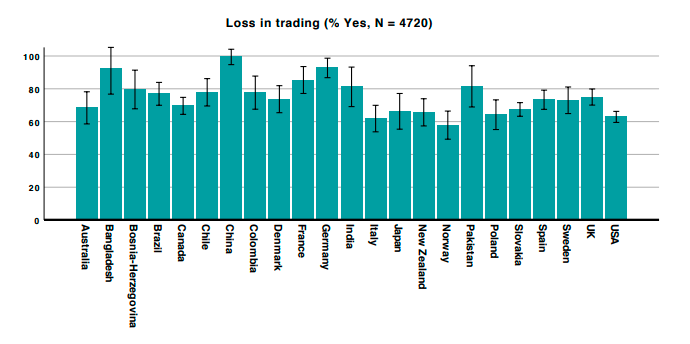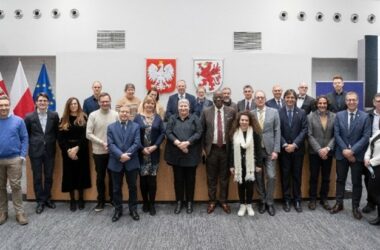 60% of Spanish entrepreneurs have seen their business activity threatened by COVID-19. This figure is slightly below the international average, according to a research co-led by Universidad Pablo de Olavide which assesses the pandemic’s impact on the entrepreneurship group in terms of economy, as well as emotional well-being and social relationships. The data, which compares a sample of 23 countries, ranks Spain at the bottom of the list in job creation prospects, just behind Japan.
60% of Spanish entrepreneurs have seen their business activity threatened by COVID-19. This figure is slightly below the international average, according to a research co-led by Universidad Pablo de Olavide which assesses the pandemic’s impact on the entrepreneurship group in terms of economy, as well as emotional well-being and social relationships. The data, which compares a sample of 23 countries, ranks Spain at the bottom of the list in job creation prospects, just behind Japan.
Late payment of invoices and problems in meeting payrolls or suppliers have been the two main threats to these businesses during the pandemic. Around 28% of self-employed and small and medium-sized enterprises (SMEs) have had to face these circumstances. This has affected in a special way to China, Pakistan, or Germany, a country that leads the list of entrepreneurs with difficulties to meet the costs of their activity (44.5% of the cases).

The health crisis has not led to changes in that way for almost half of Spanish respondents (41.5%), “maybe because Spain had not emerged from the previous crisis yet”, pointed Ana Perez-Luño, main co-author of the research and founding member of the research center Inn-Lab belonging to UPO.
Along with the economic issue, the jump to digital adaptation is another commonplace for this group. 42% of the sample claim that distance working has increased or that they have started to work from home. Attendance to the entrepreneurs’ offices from Chile, Australia, and United Kingdom has been reduced to less than 10% of the cases, a figure that rises to 42% for Spain and Japan. At the other end, the countries where distance working is less popular are Bosnia-Herzegovina, Norway, and France.
In spite of the coronavirus, around 70% of entrepreneurs hope to create more jobs in the next few years and almost 40% estimate that their businesses will be even bigger than they were before the pandemic. A moderate enthusiasm (almost half of the sample admits being in a precarious situation), in light of the new opportunities that are still emerging at these times.
“We are talking about a group that is used to facing continuous uncertainty, with a high level of resilience, but it is also necessary to consider that the research was carried out before the second wave and today, for certain sectors, the situation is harder”, says Ana Pérez-Luño. For this reason, the contributors of the research, funded by King’s College London, are preparing a new approach for the month of July to compare it with the results obtained last summer.
Emotional well-being
According to the report, levels of life satisfaction have dropped by 12% during the first months of pandemic, going from 7.5 to 6.6 out of 10. Further on, barely half of the participants found enough time to recover from work stress or to exercise regularly. 44% reported not getting enough sleep. Regarding this data, Spain is in line with the international average.
The majority of the sample (58%) expressed concern about both their own and their family’s health. In this regard, slightly more than a third of the participants acknowledged their fear of receiving insufficient medical care. Uncertainty, as a result of the health crisis, was another of the main sources of stress, along with long working hours that were around 45 hours a week on average.
Almost half of the entrepreneurs reported frustration with social constraints. However, the report highlights that barely 15% admitted feeling alone in their jobs. Social support from those around them (family, friends, and other entrepreneurs) has had a positive impact on this group, experiencing good emotional support in most cases.
About the report
Entrepreneurship during the Covid-19 Pandemic: A global study of entrepreneurs’ challenges, resilience, and well-being is a project led by Ute Stephan, Przemysław Zbierowski, Ana Pérez-Luño an Anna Klausen, mainly funded by King’s College London, and also by the Andalucía European Regional Development Fund (ERDF) (among other sources). Furthermore, it also has the collaboration of observatory GEM (Global Entrepreneurship Monitor). Researchers from 25 different universities, who have surveyed more than 5.200 entrepreneurs from 23 countries have participated in it, including United Kingdom, France, Spain, USA, China, and Japan.
The research sizes the impact of the pandemic on economic activity, business prospects, emotional well-being, and social relationships of entrepreneurs. In order to do so, they have analyzed both self- employed and SMEs from a geographical area that represents 3/4 of the world’s Gross Domestic Product (GDP).
The report concludes with a reflection on five trends identified for the post-Covid economy: digitalization, ‘local’ focus, inclusive business models, staff development and business resilience. In addition, it offers five practical steps for entrepreneurs to protect their psychosocial well-being.





